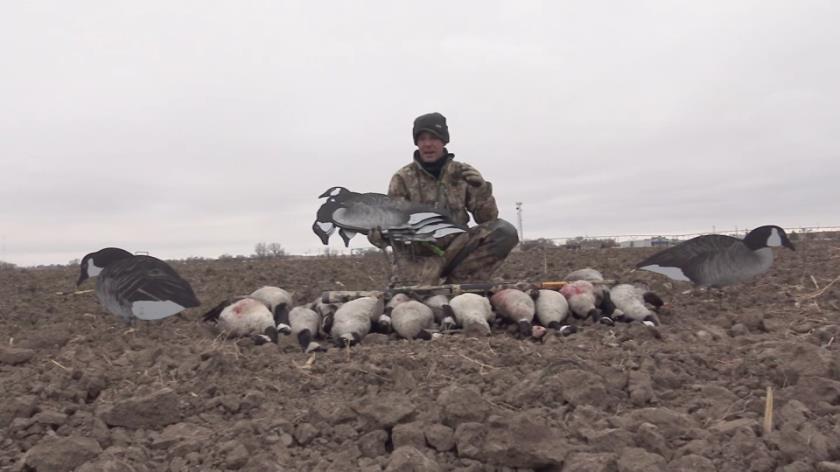Gov. Roy Cooper said Thursday that some members of Group 4 — including those with medical conditions that leave them at risk from COVID-19 — will be eligible for the COVID-19 vaccine a week early.
Group 4 includes anyone 16 to 64 years old with one or more high-risk medical conditions for severe disease from COVID-19, as well as people living in close group settings. It also includes essential workers who don’t meet the criteria as a front-line worker. The N.C. Department of Health and Human Services estimates that the group totals as many as 4.1 million people.
People with high-risk conditions, homeless people and those in group settings, such as jails and prisons, now will be eligible on March 17. They originally had been eligible March 24.
High-risk medical conditions can include asthma, cancer, cystic fibrosis, Down Syndrome, heart conditions, pregnancy, Type 1 and Type 2 diabetes, and those with a weakened immune system.
Cooper is dividing up the group, though, and said other essential workers will be eligible starting April 7. That includes people who work in chemical plants, communications and information technology industries, public works and real estate.
The change was based on feedback from the state’s vaccine providers, Cooper said, with many indicating that they are equipped to move into Group 4.
People in the first part of Group 4 will not need a note from their doctor or proof of their condition.
“We’re going to rely on people’s good judgment and their knowledge of their own medical conditions,” Cooper said.
The state’s vaccine supply is expected to gradually increase throughout the month, then take a large leap around the beginning of April with production of the Johnson &. Johnson vaccine coming online.
“With improving supplies, North Carolina can get more people vaccinated and meet our goals to provide equitable access to vaccinations in every community in the state. We’re already seeing the benefits of our vaccine effort,” said Dr. Mandy Cohen, Secretary of the NCDHHS.
Increased number of vaccinations
Vaccinations have been underway in Groups 1, 2 and 3. At the end of Wednesday, 1.89 million people in North Carolina had received at least one dose of either the Moderna or Pfizer-BioNTech COVID-19 vaccines, with 1.15 million totally inoculated. An additional 21,859 people had received the Johnson & Johnson one-shot vaccine.
The shots are happening at a brisk enough pace that this is the second time the state has advanced its distribution schedule. Earlier this month, the governor announced that front-line essential workers in Group 3 would be eligible a week ahead of schedule.
“Across the state, we still have a lot more demand than we do supply,” Cooper said, “but we are concerned about some people who are not taking the vaccine, and we know sometime relatively soon we’ll have more supply and less demand.”
On Wednesday, the state’s first federally run mass vaccination site opened in Greensboro with the goal of vaccinating 3,000 people a day. The appointment-only site will be open seven days a week for 10 weeks, ultimately vaccinating about 20,000 a week.
In describing why the location of vaccination sites is important, Cohen pointed to the Greensboro clinic being located in the Four Seasons Town Centre shopping mall. Those who work at the mall’s retail stores or in its restaurants can more easily get a shot around their work shifts and show the importance of offering shots through essential workers’ employers, Cohen said.
“We’re doing work particularly with those businesses who run front-line essential businesses to say, ‘How can we make vaccines more convenient and more accessible for your workers?’” Cohen said.

Wake County Public Health is among the providers who stand prepared to enter Group 4, said Stacy Beard, a county spokeswoman, in an email. Those in Group 1 who are making appointments with the county are waiting about a day to receive their shot right now, while people in Group 3 are waiting about six days.
Beard said Wake County officials are planning to make their vaccine request form available to people in the first part of Group 4 on or before March 17.
The Centers for Disease Control and Prevention has stressed the importance of keeping up public health measures such as social distancing, wearing a mask and avoiding large gatherings, even as COVID-19 metrics have stabilized at a point much lower than their post-holiday season highs.
“We’ve got to keep it up,” Cooper said. “Until there is enough vaccine, wearing a mask is as important as ever.”
This week, the CDC said people who are fully vaccinated can be indoors without a mask with those who also are fully vaccinated. There should still be caution, though, about being with people who are at high risk of getting the coronavirus. In those cases, masks should still be worn.
Is it your time for a COVID vaccine shot? Here’s how to make an appointment.
Schools
The news conference came hours after the NC legislature passed a new school reopening bill that Cooper supports. Cooper, a Democrat, and Republican legislative leaders announced the compromise bill Wednesday that would affect more than 1 million K-12 public school students. The governor had vetoed an earlier schools reopening bill.
Now, after a year without being in a classroom, thousands of North Carolina students who have been in remote-only learning will be able to get in-person instruction. Most of the state’s K-12 public school students already have the option of in-person learning, but not all districts have used the option or have not held full-time classes.
Once Cooper signs the bill, elementary schools will be required to reopen for full-time, in-person learning under Plan A, and middle and high schools under Plan A or B, which has six feet of social distancing requirements and has resulted in a hybrid model that mixes in-person and remote instruction. All students will still be allowed a virtual school option as well.
Schools reopening isn’t the only thing Cooper and legislative leaders are working on together.
Senate leader Phil Berger, an Eden Republican, told reporters on Thursday that he had an in-person meeting with Cooper and discussed a way to encourage the state’s residents to get their shots.
“I suggested that if there is a benefit to the elected leaders — the governor, the speaker, the pro tem, the majority and minority leaders in both chambers — of standing in the same place and encouraging people to get the vaccine,” Berger said. “I’d certainly be interested in doing that.
“If we get more people vaccinated, I think we’ll be in better shape as far getting back to what even I have begun to call ‘normal,’ whatever the heck that is,” Berger said.
Berger then joked that appearing in a vaccination ad with Cooper might not be effective. They are the two most powerful state politicians in North Carolina, and of opposing parties.
“I don’t know how effective it would be. It might scare the heck out of everybody and nobody will get a vaccination — people will think it’s the end times or something,” Berger joked.
Cooper received his first vaccine dose last week. Berger, who is older than 65, has received both doses of vaccine.
NC Insider editor Colin Campbell contributed reporting.





More Stories
Victims, gunman, and ‘good Samaritan’ who ended massacre ID’d in Indiana mall shooting
Armed citizen at Greenwood mall hailed as hero who saved lives – WISH-TV | Indianapolis News | Indiana Weather
Indiana mall shooting: Live updates